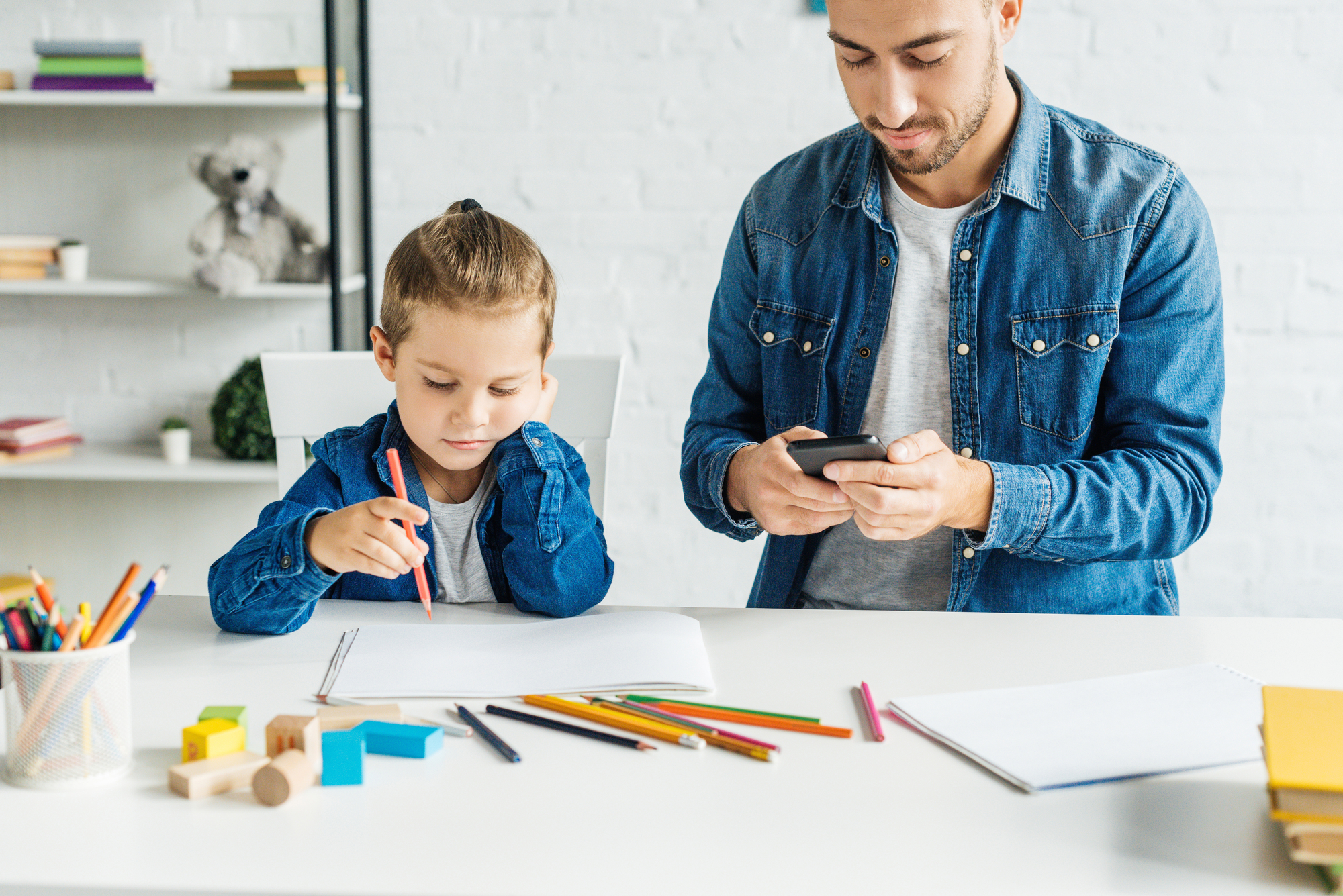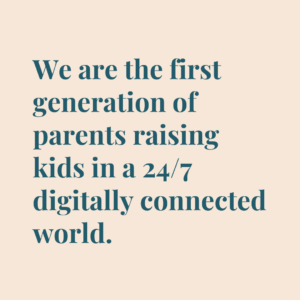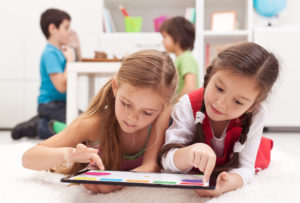Is your smartphone your constant companion? Well, you’ve got plenty of company.
In our digitally saturated world, it’s easy to overlook the impact our adult tech habits can have on our children. Parents need to know how their digital media use is affecting their children’s emotional health and development.
We’re living in an unprecedented technological age. Think about how our daily lives have changed in the past decade. That’s the time in which smartphones have become a constant presence in our lives. These digital devices are powerful and addictive. We’re still just beginning to learn how to manage them healthfully.
In the meantime, screens and social media are transforming our behavior and our relationships. I wrote recently about how kids’ screen time can affect their mental health. A lot of parents know it’s important to limit children’s exposure to electronic devices, to protect their social, emotional, and behavioral development. But not enough parents understand how their own technology use can impact their children.
What is Technoference?
Technoference describes the interruptions to our in-person communication and interaction that comes from our attention being directed at our digital devices. When we meet a friend for coffee and miss the end of a funny story because we’re distracted by a buzzing phone, that’s technoference. When we forget to greet our co-workers with a “good morning” because we’re absorbed in combing through our email inbox, that’s technoference.
These constant disruptions from technology are affecting our parenting—and our children’s behavior. In recent years, I’ve observed this disturbing trend in my clinic. Watching families in our waiting area, my colleagues and I saw parents increasingly absorbed by their phones and less responsive to their children. (We’ve since instituted a ban on electronic devices in our waiting room).
What Does the Research Say?
Research shows parents spend an average of nine hours a day engaged with technology. That includes computers, smartphones, tablets, and other screens. About a third of that time—roughly three hours—is spent on smartphones alone.
Scientists are still just beginning to grasp how all this technology is affecting our relationships, including with our kids. But research is already showing us negative parenting consequences from the time we spend paying attention to our devices. Studies show parents talk and interact less with children when we’re on our phones. We’re more likely to show frustration and hostility toward our kids when they come looking for our attention. The more we use our devices while parenting, the less attuned we are to our children’s emotional and mental states of mind.
A new study has measured the interference that technology causes in parent-child interactions. This research included more than 180 parent couples with young children under age five. Over a six-month period, researchers evaluated how technology affected contact and communication between parents and their kids, and changes to children’s behavior.
They found that using technology when parenting led to more behavioral and emotional problems in children. Those behaviors included more anger, aggression, and hyperactivity as well as greater anxiety, sadness, and frustration. Among parents, more than half of mothers and slightly less than half of the fathers said that interactions with their kids were interrupted at least once every day by technology.
This study found that technology appears to fuel a negative cycle of behavior and interaction between parents and kids. Parents who felt stress when spending time with their children spent more time engaged with technology, as a coping mechanism for stress relief. When parents withdrew into their devices, children’s negative behaviors increased. This caused even more stress for parents, perpetuating this cycle of poor parent-child interaction.
The Risks to Child Development
There is no more important relationship to children’s healthy development than one with parents and caregivers as it is essential for every area of children’s growth. From the first days of their lives, this relationship is the cornerstone of their social, emotional, behavioral, and cognitive learning. Parents facilitate that learning by being attuned to children’s needs, to their behavior and the emotions behind it.
We are fundamentally social beings. We learn how to think, express emotion, manage behavior and form relationships from our in-person, face-to-face interaction. In talking, playing, giving attention and being fully present with our children, we provide them with emotional, social and behavioral cues. We can and should do this intentionally. But we also do it instinctively. We’re biologically hard-wired to connect with our kids to help them learn and grow. The information and feedback our children get from us fuels their brain development and fosters healthy emotional growth. It enables children to learn to regulate their feelings and their behaviors. It gives them the security to become more independent. It teaches them the social skills they need to create positive relationships with others.
As parents, when our attunement to our children is weakened, all this critical learning is interrupted. The phones we carry with us, and the screens that fill our spaces create a uniquely modern danger for parents. We can be physically present with our kids, yet deeply distracted both mentally and emotionally. At the surface, it may seem and feel as though we’re actively parenting and being attentive to our children, but a critical part of the attention our kids need is unavailable.
It’s not my intention to make parents feel bad, or harshly judged. Digital devices are built to pull and hold our attention. They’re a particularly aggressive form of distraction, one that can be difficult (but not impossible) to resist. And for all its deep rewards, parenting is hard, often stressful, and sometimes tedious. With our smartphones in reach, it’s understandably easy and tempting to dip into the digital world for an escape or to connect with other adults.
What You Can Do
I want parents to be aware of the impact that their tech use can have on children and equip them to make thoughtful, informed choices about how to manage their technology habits alongside their parenting. Here are a few tips to keep in mind:
Establish tech-free times and tech-free zones. It’s unrealistic and unnecessary for parents to stop using smartphones and digital media. Designating times of day and places in your home and routine where you stash your phone out of reach can help devices from taking over every moment of our lives. Daily play sessions, meals, and bedtime are times that often make sense for parents to go tech-free. Keeping devices out of bedrooms and away from areas where your family gathers can help you resist the drift toward screens.
Focus on being fully present. Our phones and devices divide our attention, to the point where it can be hard to remember what it feels like to focus on one thing. When you’re engaged with your kids, take note of what it feels like to be present and focused on them. With awareness, you’ll have an easier time returning to this state of attunement.
It is OK not to be available. I want to be clear: parents do not need to be always available to their children. That’s not actually to our kids’ benefit. Children do best when they have clear times when parents are unavailable and times when parents are fully present. Whenever possible, avoid the confusing mixture of being physically present but mentally and emotionally distracted.
Take steps to manage stress. The stress that accompanies parenting isn’t new and tucking your smartphone in a drawer isn’t going to make that stress disappear. Remember, that your well-being too is a priority. By practicing good exercise, sleep, and diet habits, you can help lower stress levels and prepare yourself to better weather the challenges of parenting. When in the midst of engaging with your child, even simple breathing exercises and mindful meditations can help you overcome the weight stress often brings.
What You Should Do Next:
Sign up for my Better Behavior Naturally community newsletter
Sign up for my newsletter to get tips, resources, and supports to improve your child’s attention, anxiety, mood, and behavior…while making your job as a parent easier.
Enroll in one of my workshops
Check out one of my many workshops where you’ll join my exclusive community of parents in a one-of-a-kind virtual resource accessible 24/7. Whether you’ve got a child with a diagnosis like autism or ADHD, or are becoming more and more frustrated with a child who struggles to listen and cope, these workshops are designed to give you the information, tools, and support you need…whenever you need it.








